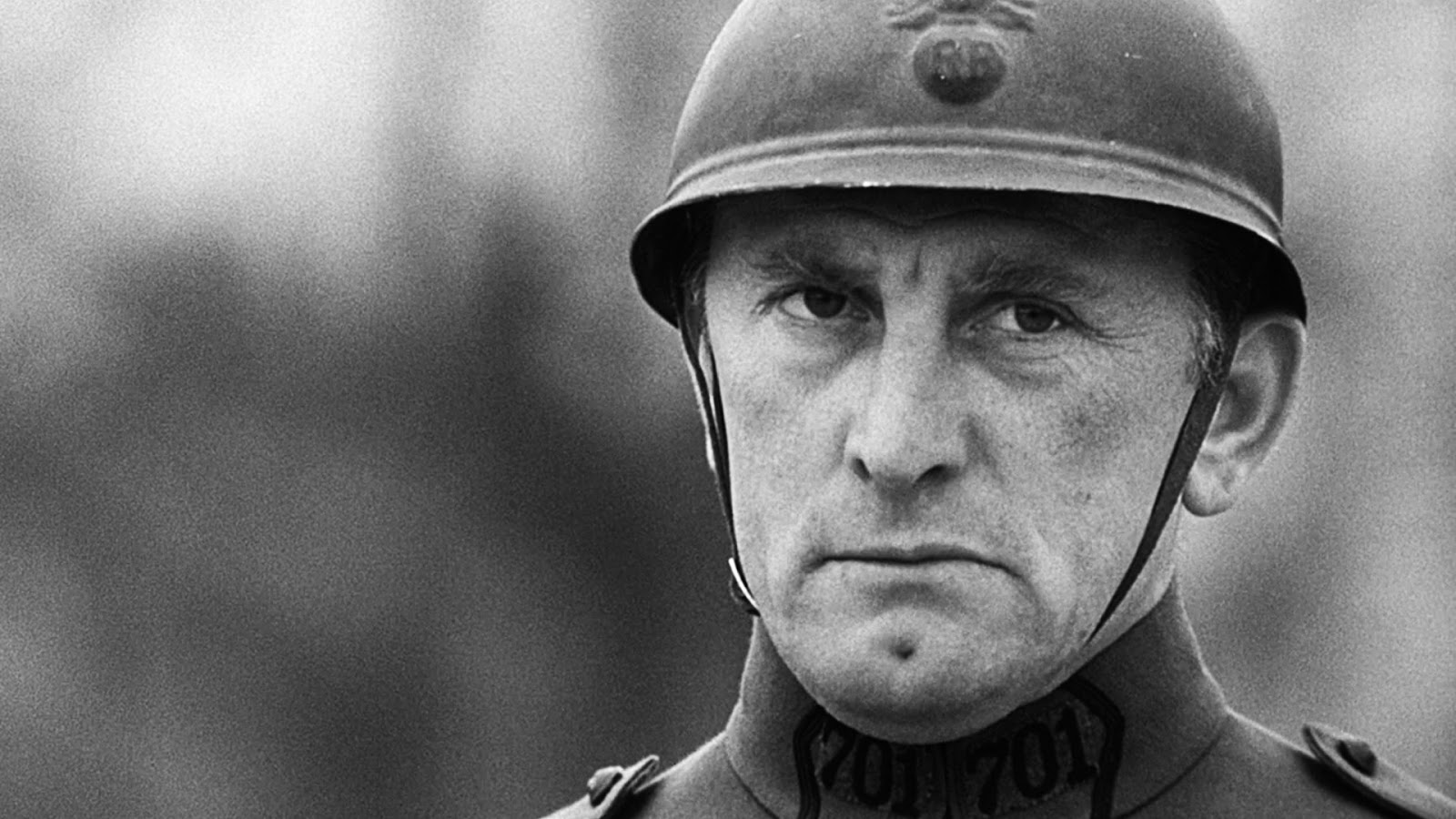
The borough of the Bronx in New York City is known for two major contributions to the world of entertainment: it’s the birthplace of hip-hop, and it’s also the stomping grounds of legendary film director Stanley Kubrick.
Surprisingly, for such a revered filmmaker, Kubrick had a rather small filmography with only 13 films, and many cinephiles will claim his greatness started with “Dr. Strangelove” and would continue with all his other films that followed. It ended with his last film, “Eyes Wide Shut”, and many of Kubrick’s fans would exclude “Barry Lyndon” from that epic run of great filmmaking.
But prior to making “Dr. Strangelove”, Kubrick had already directed a masterpiece by the age of 28 with the compelling war film “Paths of Glory”, released in 1957, starring Kirk Douglas. The movie is an impressive piece of art, showing the trademark craftsmanship for which Kubrick was famous, from impressive camera work to telling a raw and uncompromising story.
Even during filming, the young 28 year old director was already doing numerous takes and would become notorious for putting his actors through it. It even forced veteran actor Adolphe Menjou to do 17 takes of the same scene, causing the actor to explode with anger at Kubrick; after the verbal tirade was over Kubrick just calmly said: “All right, let’s try the scene once more.” Menjou complied and did another take. Kirk Douglas had this to say about Kubrick: “He was a bastard! But he was a talented, talented guy. So, we had lots of fights, but I always appreciated his talent.”
Thus, it was no surprise that Douglas had the young director take over as director for the big-budget film “Spartacus” when the production started to have problems. “Paths of Glory” stands out among the director’s early films because it bucked the trend at the time when Hollywood was making pro war films; it was an unapologetic anti-war movie, and the tone of the film feels more like foreign film instead a Hollywood production. And for such a great film, it’s rarely talked about by critics and cinephiles, making “Paths of Glory” Kubrick’s forgotten masterpiece.
1. Politics of War
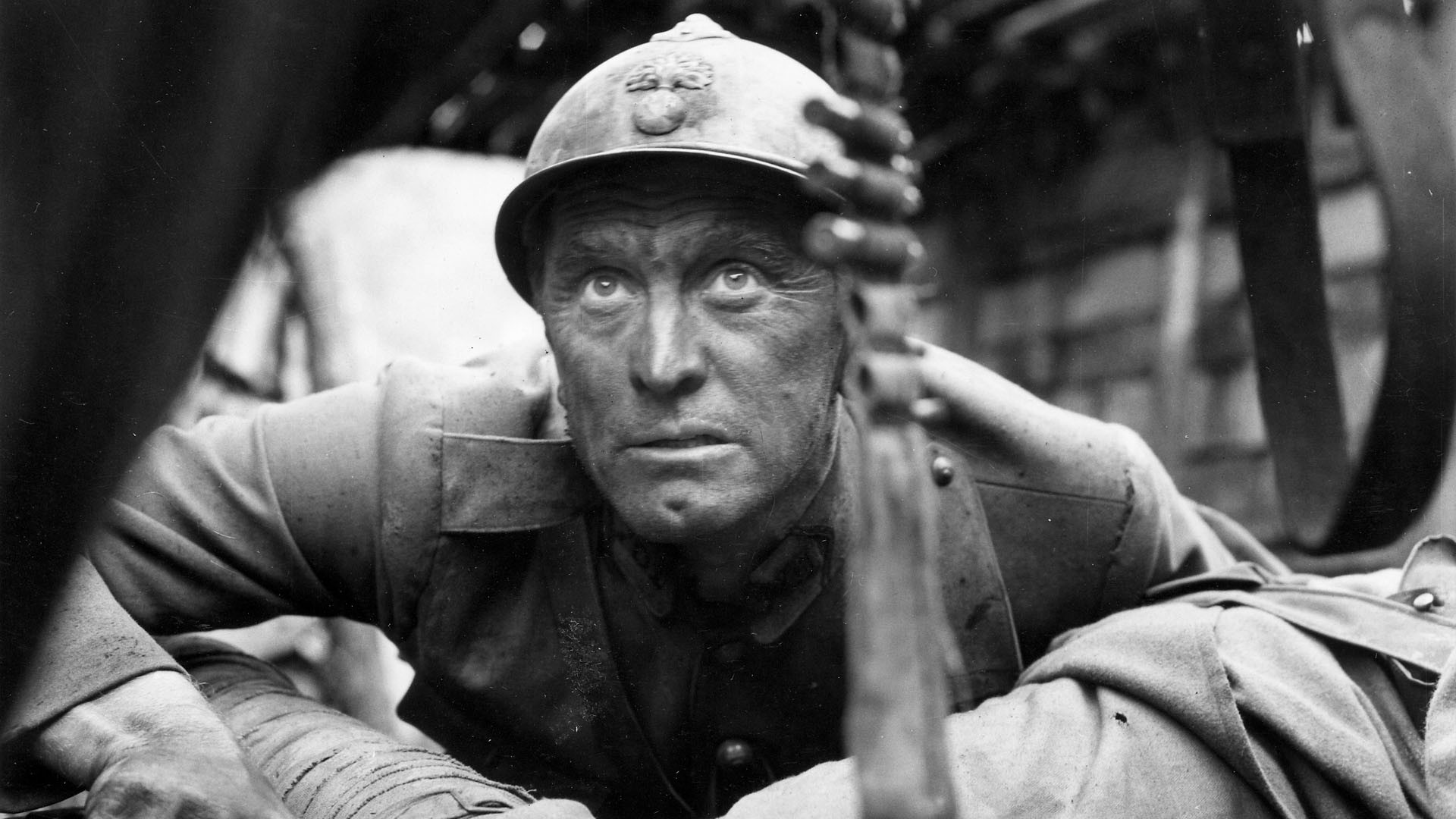
During World War I, General Georges Broulard of the French army pays a visit to his subordinate General Mireau with a request. Broulard wants to attack and take hold of a heavily fortified German position on the battlefield known as the Anthill.
Being well versed in military strategy, Mireau tells his boss it would be an impossible task and foolish to even attack that particular position. But when his boss offers him a sweet promotion, Mireau changes his mind and endorses the insane military strategy, because rising up higher in the military ranks is more important than the lives of fallen soldiers, and if he plays the game the military establishment wants him to play, he knows he will be rewarded well.
By presenting this dilemma, Kubrick brilliantly shows the politics of war, telling the audience that many battles are lost and soldiers are killed, not because of poor military strategy, but because of politics. Why would such orders be given? Probably because politicians with no military expertise gave the orders to the military, and everyone, including generals, has someone higher up to answer to.
2. Trench Warfare
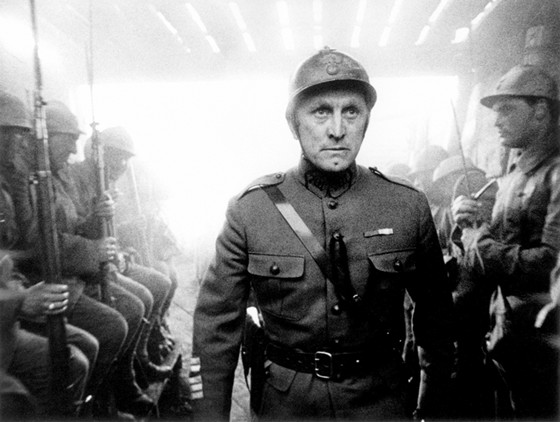
Kubrick takes us into the world of trench warfare, where soldiers are dug about 10 to 15 feet underground in trenches. The soldiers can avoid flying bullets, but artillery fire is another story, and the omnipresent sound of nearby explosions lets the viewer know that at any moment, death can rain down from the sky.
Kubrick used wide angle shots inside the trenches, creating claustrophobic tension with the wider focal length, and with such tight confines, Kubrick put the audience right in the middle of the action. When Colonel Dax, played by Kirk Douglas, leads his men out of the trenches to assault the Anthill, Kubrick created some of the most realistic combat footage captured on film at the time. While Hollywood created glossy stylized battle scenes, the combat in “Paths of Glory” are brutal because of their realism.
3. Cowardice in the Face of the Enemy
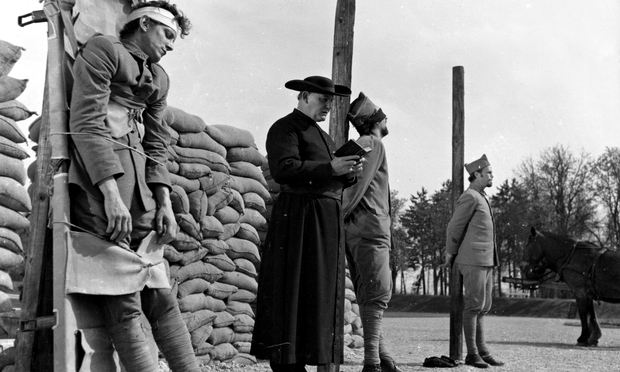
In the movie, three innocent soldiers are sacrificed to face the firing squad, having been charged with cowardice in the face of the enemy. These three men were picked randomly because Company B didn’t leave the trenches to attack the Anthill, because they were under heavy fire and suffering many casualties by the German onslaught.
Kubrick showed the real cowards are the men in charge of running the war, not the brave infantrymen on the battlefield. The first cowardly act is when General Mireau changes his mind and agrees to attack the Anthill and when the General arrives at trenches every time a mortar blast is heard nearby, he flinches, showing how far removed he’s been from actual combat.
The second act of cowardice occurs when a drunken lieutenant by the name of Roget is put in charge of a nighttime scouting mission to survey the enemy’s position. The lieutenant is accompanied by two other soldiers and the men crawl across the battlefield conducting their mission, until Roget feels uneasy halting their advance, sending one of the soldiers ahead to check the German position all alone.
Minutes begin to pass and Roget begins to panic, believing the soldier he sent off by himself must be dead; the other remaining soldier, Corporal Paris, tries to calm down his superior, but it does little good because Roget throws a grenade before running off retreating back to the trenches. Paris doesn’t retreat; instead he moves forward to investigate the fate of his fellow soldier, and discovers his fellow soldier was killed by friendly fire coming from the grenade that Roget lobbed before running off.
When Paris returns to the trenches, Roget is surprised to see the corporal survived, and when Paris confronts his superior about his action that led to the death of the other soldier, Roget threatens to frame Corporal Paris for the death of their fellow soldier, using his rank as the upper hand, knowing the higher-ups will believe his word over Paris.
The third act of cowardice occurs when Mireau watches the assault on the Anthill in the safety of the trenches using binoculars, and notices that Company B hasn’t left the trenches to join the other forces in battle.
Ignoring the obvious fact that heavy gunfire is preventing Company B from advancing, Mireau orders his artillery unit to fire on Company B, thus attacking his own soldiers. The artillery commander refuses the order unless he receives a signed written letter from Mireau, which the general declines to send, which spares the lives of the soldiers in Company B.
Kubrick does show heroism in the characters Colonel Dax and Corporal Paris. When Mireau tells Dax about the plans to attack the Anthill he can’t believe his ears and voices his concerns, but when Mireau tells him he would relieve him of his command, Dax reluctantly agrees to the assault because he can’t leave his men.
A less courageous individual would welcome a relieve of command; after all, the general is asking Dax to lead a suicide mission and being replaced would grantee his survival, but he refuses and stays because he has loyalty to his soldiers.
While Mireau walks through the trenches hearing mortar explosions nearby, flinching, when Dax walks through the trenches hearing the explosions he doesn’t flinch one bit; he’s stoic and brave. And when he leads the assault on the Anthill, he’s only armed with a pistol and whistle and leads his men across the battlefield in the lead. Men are dying all around him, but Dax continues moving forward as a heavy barrage of fire is tearing up his men.
Only when he realizes Company B has yet to leave the trenches does Dax stop his advance and rushes back, trying to rally Company B out of the trenches, but he quickly realizes it’s impossible as dead bodies are falling back into the trenches. The German onslaught is just too overpowering at that moment, and Dax realizes taking the Anthill will be impossible.
The following day at military headquarters, Mireau, Dax and General Broulard are discussing the failed mission. Mireau is so disgusted by the failure that he wants 100 soldiers executed for cowardice, but Broulard asks for moderation and the number of men set for execution is reduced to three. Dax protests the execution and even volunteers himself for the firing squad, but of course, the generals deny his selfless request.
Being a criminal defense lawyer in his civilian life, Dax asks to represent the men at the court-martial and the generals agree to his request. Once again, Dax shows his bravery by volunteering for the firing squad, and his humanity by defending the men charged with cowardice, trying to save their lives.
At the end of the film, Paris displays the last act of bravery, but sadly he’s chosen to face the firing squad simply because Roget was responsible for choosing who in his squad would have to die.
A convenient move for the lieutenant, because with Paris dead, there would be no witness to testify about the lieutenant’s act of cowardice during the scouting mission that resulted in the death of a fellow soldier because of friendly fire. At first Paris is dismayed at his fate, but at the end he marches towards the firing squad, showing no fear, even though his only crime was serving his country.
4. Anti-war Movie
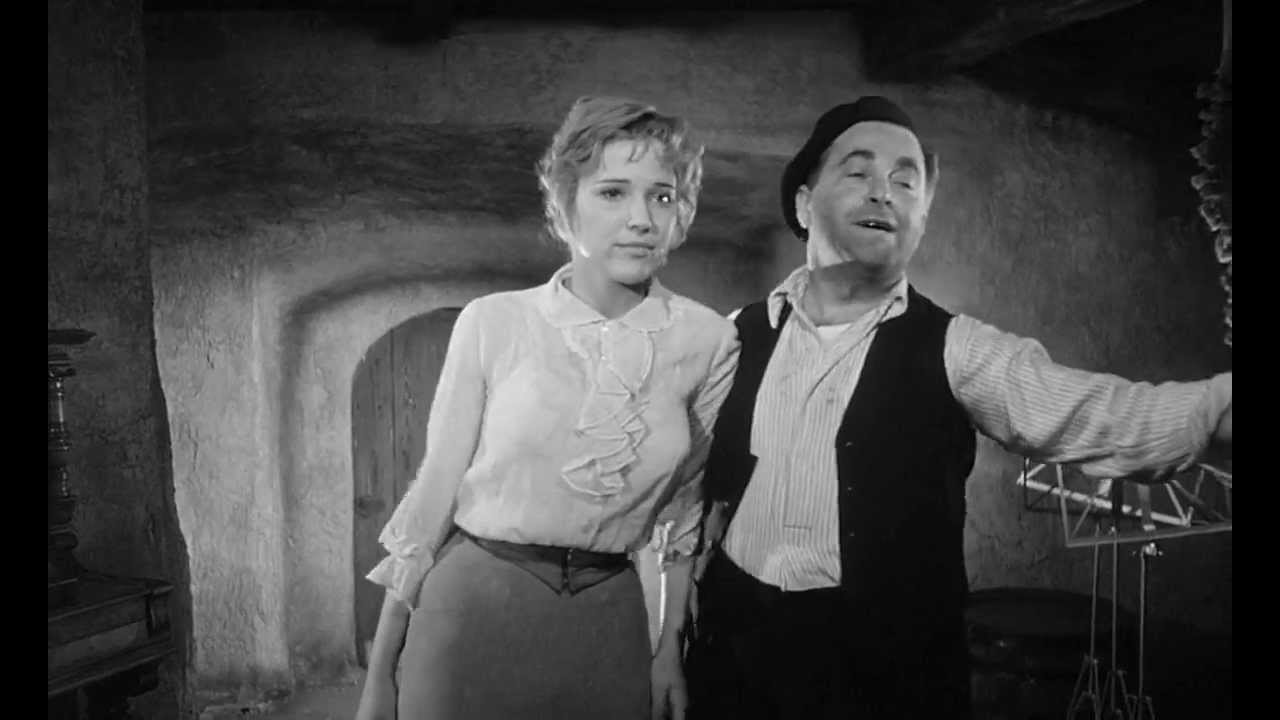
While Hollywood was turning out pro-war movies that almost felt like propaganda films from the Pentagon, Kubrick chose to make a anti-war film with “Paths of Glory”. By having the film take place during World War I and using French soldiers, Kubrick could criticize the American military without anyone noticing.
Kubrick doesn’t take the obvious route of showing war is hell; instead he shows the indifferent military machine that has little regard for the brave soldiers who fight for their country. During the court-martial, Colonel Dax passionately defends the three men charged with cowardice, but it’s obvious the men’s fate has already been sealed.
And when Kubrick shows the actual execution by firing squad, it’s so realistic that it’s surprising he was able to get the scene past the censors overseeing Hollywood at the time. Toward the end of the film, true justice arrives when the artillery commander presents Dax with signed letters from all the witnesses present when General Mireau ordered the artillery unit to fire on Company B for not leaving the trenches during the battle to take the Anthill.
Dax takes this devastating information to General Broulard, knowing the ramifications, and the general realizes he must do something. The next morning, while Mireau and Broulard are having breakfast, Dax arrives, and Broulard tells Mireau he will be investigated for ordering artillery fire on his own men. Shocked and caught off-guard, Mireau denies the allegation, claiming he’s being used as a scapegoat before angrily leaving.
Broulard then offers Dax Mireau’s command, which Dax turns down. The general is shocked, believing Dax’s motivation all along was a power play for Mireau’s job; when he discovers Dax’s true motivation was justice, he berates the colonel, calling him an idealist. Dax fires back by speaking truth to power, calling the general a degenerate, sadistic old man before leaving.
That last line from Dax to Broulard sums up the anti-war message Kubrick wanted to convey to the audience. Warfare is run by sadistic old men who couldn’t care less about the young men who die on the battlefield, and after watching “Paths of Glory”, the horror of war is unnerving, but the viewer is also disgusted by the people who run the war as well.
Author Bio: R. Prince is a filmmaker from Harlem, New York and the author of the book How to Roll a Blunt for Dummies.